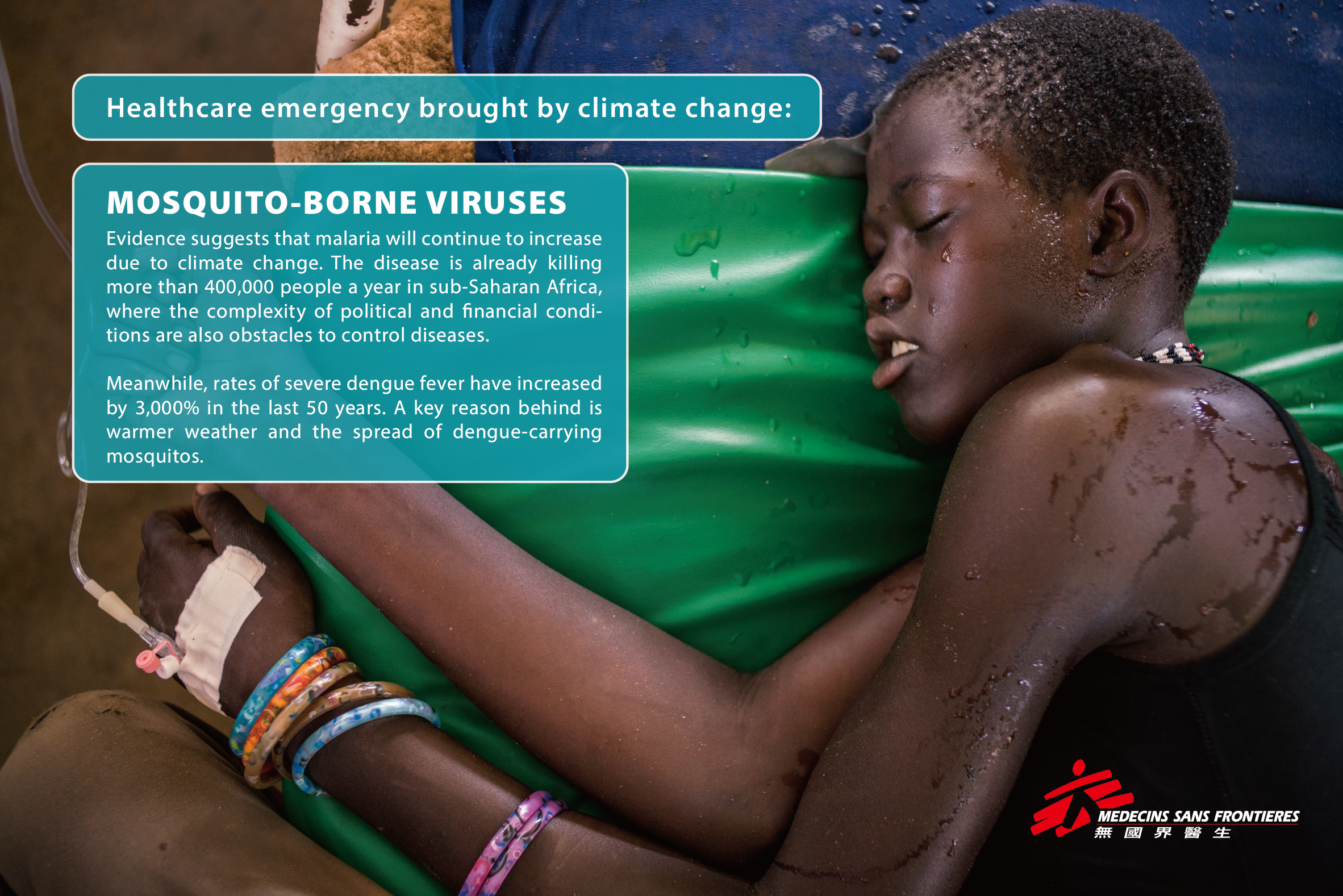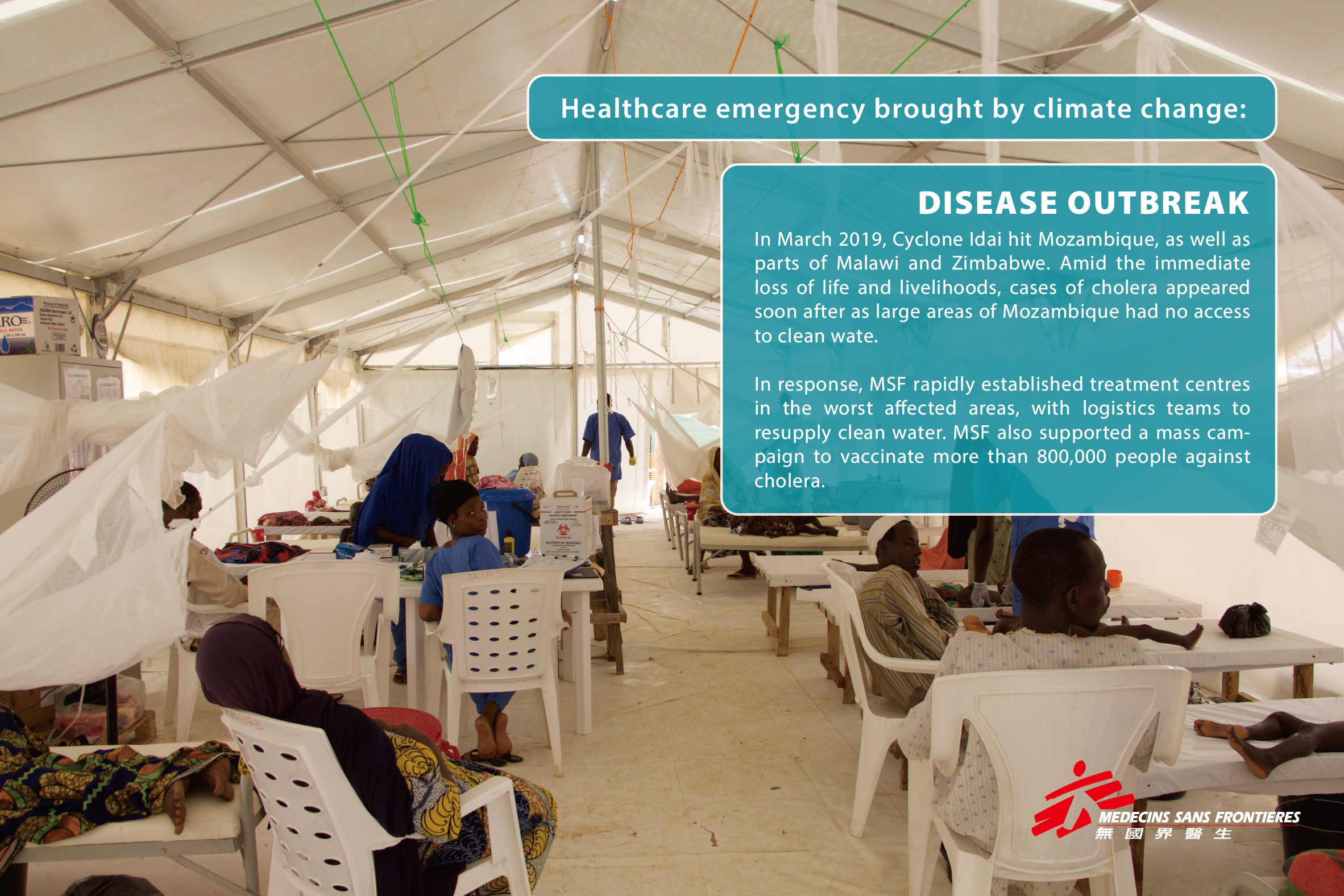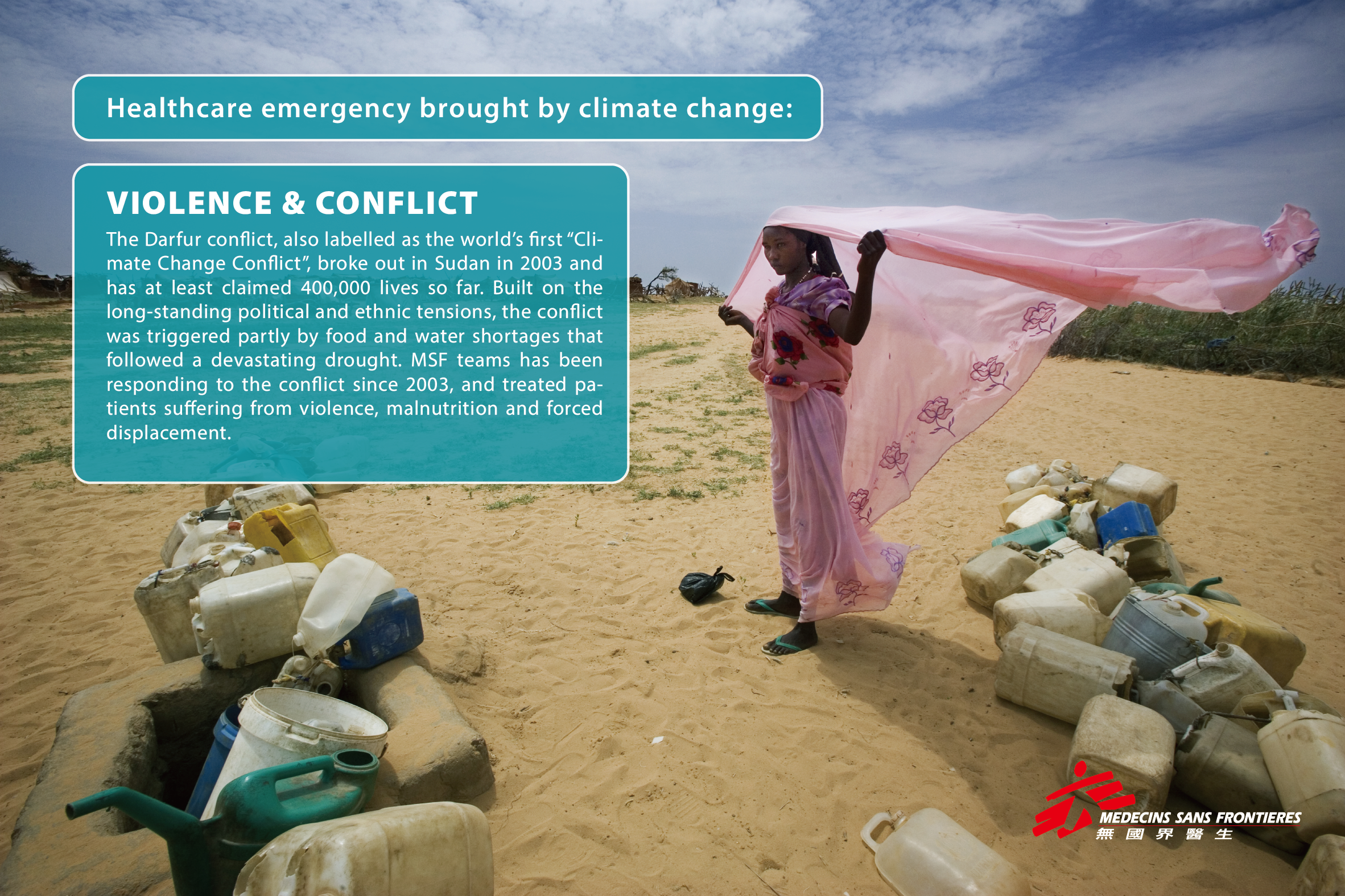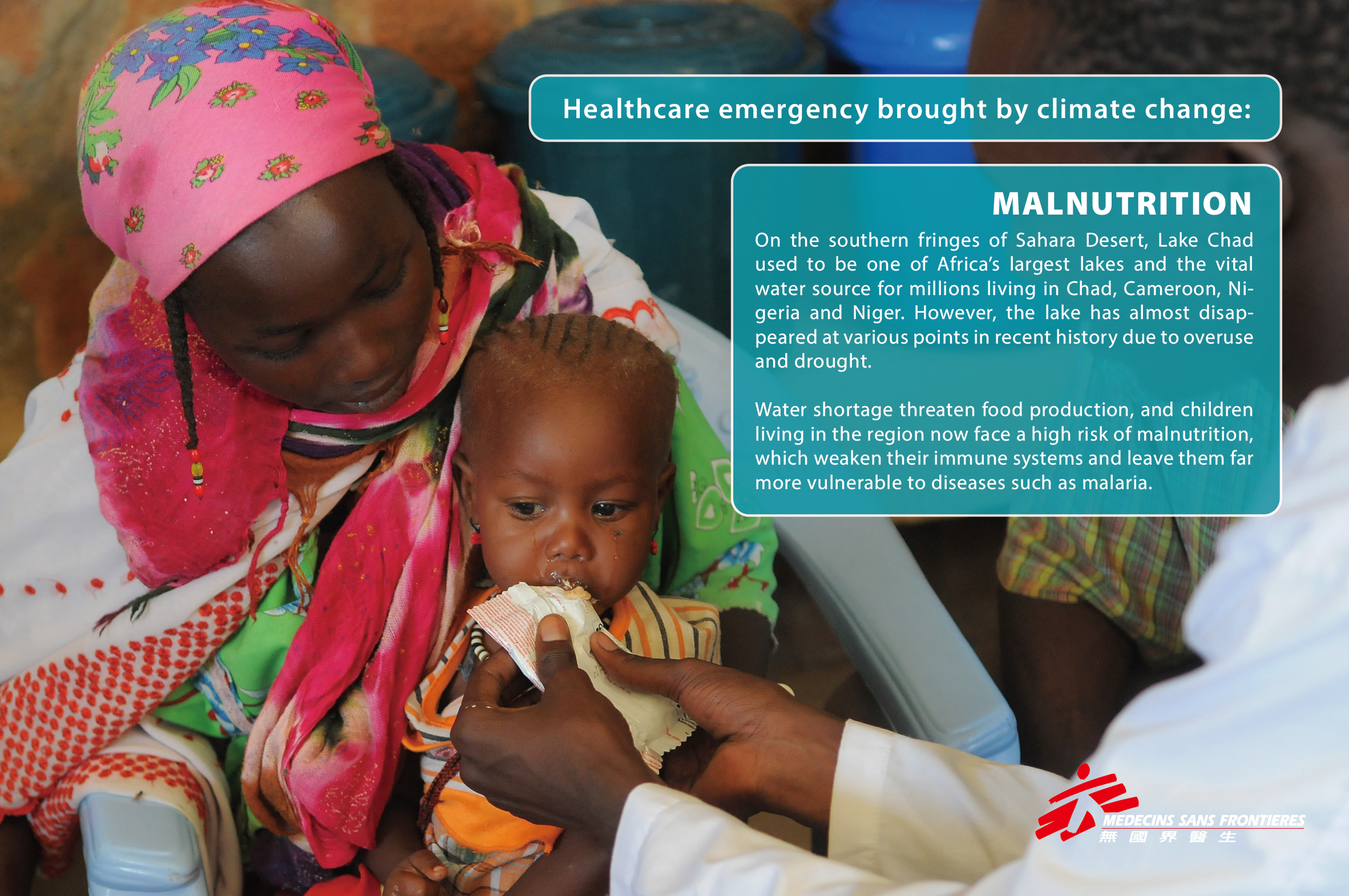From COP 26 to online educational tools MSF shares concerns on climate emergency and its medical consequences
Médecins Sans Frontières (MSF) participated as an official observer for the first time at the 26th United Nations Climate Change Conference of the Parties (COP26) which has marked an end last Friday. Apart from our physical participation, we have also designed a set of infographics (see below) to illustrate how climate crisis possibly aggravates healthcare emergency.
MSF, as a humanitarian medical organisation, has long responded to some of the world’s worst medical and humanitarian crises. In recent years, our teams witness how climate emergency possibly worsen existing humanitarian situations. It has always been our duty to speak out for those whose voice is not heard; and it became the driver for MSF to attend COP26 to share the concerns of the communities that we serve.
In some areas that we work, we have witnessed frequent extreme weather events, such as cyclones and droughts which often bring direct casualties; while warmer temperatures and more rainfalls create breeding grounds for mosquitoes, causing sharp increases in malaria and dengue fever cases. Climate breakdown also results in food and clean water shortages, and thus surging cases of malnutrition. Competition for resources leads to violent conflicts, with the example of Darfur conflict that began in Sudan in 2003, which is known as the world’s first “climate change conflict”.
Healthcare emergencies do not come singly. For example, in Niger, one of the most climate-vulnerable countries in the world, MSF teams on the ground and our patients have observed a different “malaria season” and a longer “meningitis season” which are possibly linked to the changing rainfall patterns, including heavy rains, floods, and different rain seasons. Difference in rainfall pattern and intensity impact mosquito which is the major contributor to malaria; while the delay of the rain reason extends the spread of meningitis. These changes also result in less crop yield, and the decreased availability of food impacts people’s health and increases malnutrition rate. The deadly combination of diseases and malnutrition has taken a heavy toll on children under five.
In response, MSF has been increasing medical activities and support to communities. To improve access to basic health services and address needs in an area with high malaria prevalence, our teams have put in place a health network of community activities. Between May 2019 and the end of 2020, the project provided care for 158,000 children, almost 60% of whom had malaria. More cases of healthcare emergencies under climate breakdown can be found in the infographic pack.
As the climate changes, needs change, so will our medical action. Apart from our regular medical projects in over 70 countries in the world, we are also constantly reviewing our operational strategies to ensure emergency preparedness is featured prominently and we can continue to provide the best care for our patients and deliver aid where it is most needed.
Click the thumbnails below to download full size image:











Leave a Comment